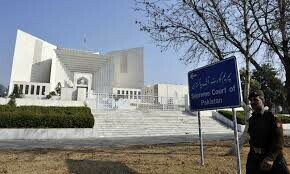ISLAMABAD, Aug 14: The focus in a high profile terrorist case remains on the accused and the crime and those who are seen as responsible for acquitting the 'guilty'. But there are more characters in this cast. The prosecutors and the defence lawyers.
A peep into the lives and work of public prosecutors gives another side of the story. They work in fear, without adequate administrative support, and wistfully look at the defence lawyers facing them who are making millions and becoming media savvy. “Terrorists threaten us. They are influential and well informed. They not only know our office timings, but also the schools and colleges where our children study,” a public prosecutor told Dawn . He was speaking on the condition of anonymity because of the issue's sensitivity.
In the first seven months this year, the three Anti-Terrorism Courts (ATCs) in Rawalpindi acquitted 56 accused in terrorist cases out of a total of 96 cases. And only 21 have been acquitted.
Out of 33 cases, the ATC-1 has acquitted 20 accused. Only six were convicted and the rest of the seven cases were closed due to other reasons. Similarly ATC-II released 22 accused, convicted only three and closed down eight cases.
The ATC-III convicted 12 accused out of the 30 cases it decided in the first seven months this year. It allowed 14 accused to walk free and closed down four cases.
The prosecutor agreed that poor probe is the “basic reason” for higher rate of acquittal but added that internal and external pressure is also affecting the prosecutors' progress.
In high profile cases like suicide attack on Rescue 15 in Islamabad, murder of Polish engineer, and assassinations of Shahbaz Bhatti and banned Sipah-i-Sahaba Pakistan (SSP) chief Maulana Azam Tariq, some of the accused have been acquitted by the ATCs of Rawalpindi in the first seven months of 2011.
“Our job is to prosecute terrorists facing an offence of killing dozens of innocent people, but prosecutors themselves are facing security, administrative and financial problems. We do not have a security guard or official vehicle,” the prosecutor added.
About administrative problems, he pointed out that he is working as prosecutor in ATC, though he is a deputy district prosecutor (DPG). According to the law, there must be a DPG in his place.
“To save expenses, our high-ups are reluctant to appoint DPGs.” He added his current in-between status has limitations. “I cannot direct investigation officer or his bosses to follow certain procedures.” Summing up the hopelessness, he added: “The prosecutor office works like a post office in ATC.”
But whenever there is an acquittal in a terrorism case, there is trouble for the prosecution office.
“We have to face lengthy inquiry. After the acquittal of accused in the assassination case of army's surgeon general, the inquiry committee recommended compulsory retirement of some of our colleagues.”
Working in fear and without much support, public prosecutors also look at private lawyers making millions for defending the accused in terrorist cases. “A private lawyer earns millions and a prosecutor only a few thousand rupees.”
Tariq Mustafa, Rawalpindi District Prosecutor, admitted lack of facilities for prosecutors, and backed their demand for adequate security for them as they “deal with criminals”. But he maintained that the prosecution work is not affected by lack of facilities. “It is poor investigation that leads to acquittals.” Mr Mustafa said unlike private lawyers, the prosecutors are government employees and paid in accordance with their pay scale. “No doubt private lawyers earn handsomely but this does not relate with the job of prosecutors.”
Malik Javed Iqbal Awan, a defence counsel in Surgeon General Mushtaq Baig case, said he preferred to defend an accused on “religious and humanitarian grounds”. He said defending an accused terrorist is a profitable business. “Some lawyers have become millionaires by appearing as defence counsel in high profile terrorism cases.”
Saleemullah Khan, a former Additional Inspector General (AIG) of Police and currently a practicing lawyer, says terrorists are powerful. “They threaten to kill police officials, prosecutors and their family members.”
He suggested that to get make prosecution effective, there is a need to hide the identity the investigator, prosecutor and the judge in terrorism cases. He also proposed trial through video conferencing to ensure security and safety of all.
“It will need a change in Qanoon-i-Shahadat (Evidence Act).” But he also insisted that the centuries-old Evidence Act is not effective today when terrorists are equipped with latest technological tools.
He stressed for a law in which minimum evidence would be admissible and acceptable for the court.















































Dear visitor, the comments section is undergoing an overhaul and will return soon.